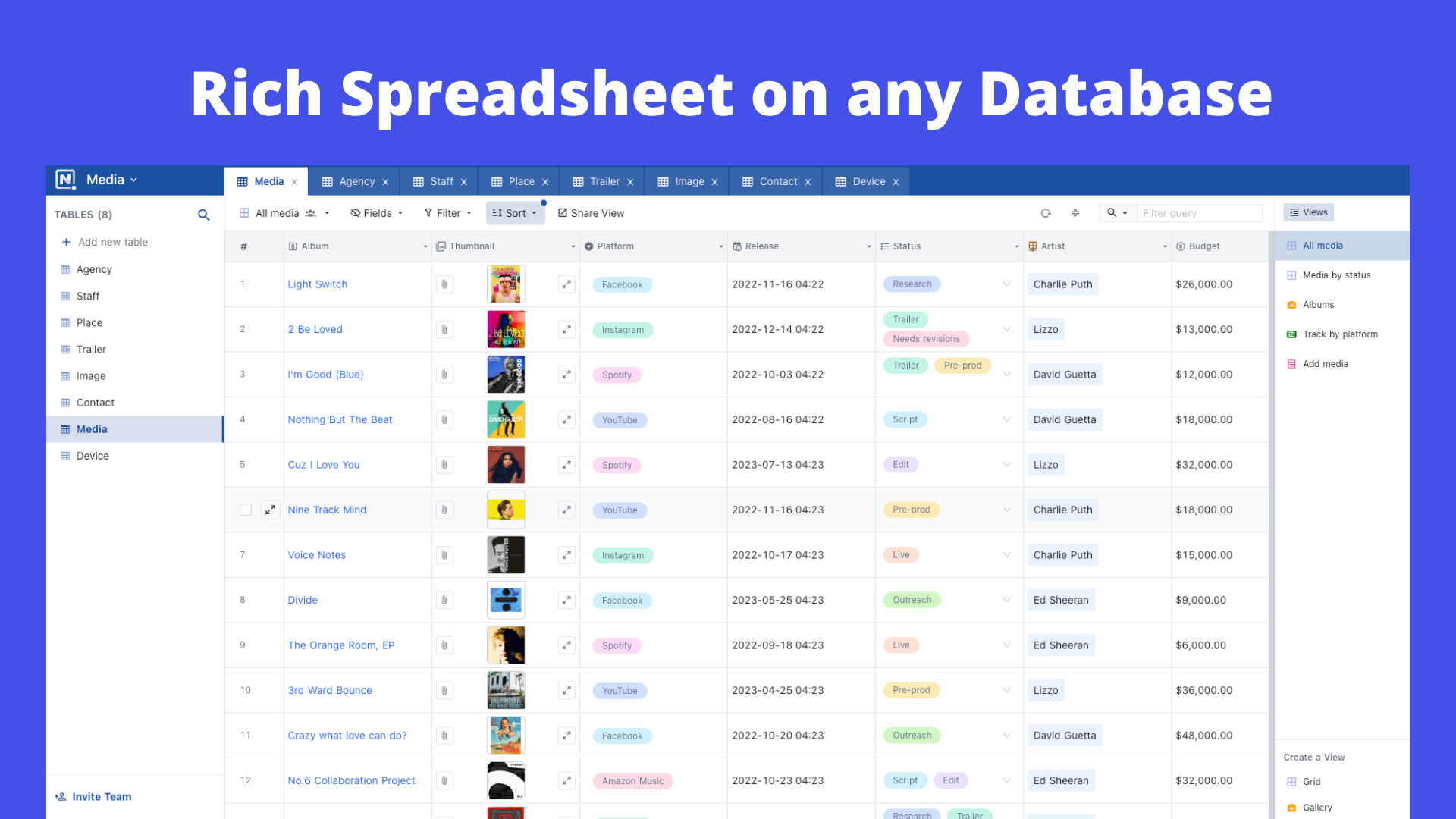Top 28 Open-source Headless CMS and Low-code Backend Systems for 2024
Table of Content
What is a Headless CMS?
A Headless CMS (Content Management System) is a powerhouse that expertly manages and organizes content. Unlike traditional CMS, it eschews a front-end or presentation layer. This design means that content is stored and delivered via an API, ready to be showcased on any device or platform.
Its flexibility and capacity to deliver content to numerous platforms such as websites, eCommerce websites, mobile (iOS/ Android) apps, and IoT devices are unmatched. Moreover, it empowers developers to leverage any programming language and framework they prefer for the front-end development.
In this post, you will find the best open-source free self-hosted headless solutions that you can use to build content-rich and user-generated content apps.
1. Grandnode
GrandNode is a versatile open-source e-commerce and content platform based on MongoDB. It supports various business models including B2B, B2C, Multi-Store, Multi-Vendor, Multi-Tenant, Multi-Language, and Multi-Currency.
It offers advanced personalization, scalability, speed, and high efficiency. It is designed to handle high performance front-end rendering, temporary and permanent traffic overloads, and provides unlimited possibilities of integration with third-party software. It also allows for fast development with a modern codebase and scalability to grow with the business.
2. Strapi
Strapi is a leading open-source, developer-first, headless Content Management System (CMS) that is entirely customizable. It supports both self-hosting and cloud hosting, and is compatible with various databases. Strapi is known for its modern admin panel, multi-database support, and full customization capabilities.
It is an ideal backend solution for web apps, mobile apps, and internal tools
3. Cockpit
Cockpit is an open-source headless content management (CMS) platform that offers a simple API for content retrieval, making it ideal for various applications. It is open-source and built with an API-first approach, catering to developers, creators, and marketers.
Cockpit facilitates project development, enhances marketing efforts, and enables the crafting of limitless digital solutions. It features structured content models, an asset manager, AI enhancements, and more for effective multichannel content distribution and localization.
Features
- Flexible structured content models
- Asset manager
- AI-Powered enhancements
- Routes, SEO and menus
- Content migration feature
- Trigger custom actions & workflows
- Component-based layout building
- Full-text search for content
- Form submissions collection
- Content localization
- Content hub for managing and distributing content
- Multichannel content distribution
- Managing content in multiple languages
- Fine-grain permissions for multiple user roles
- Content revision and safe reversion
- Open-source
- Self-hosted with complete control over your data
- API-first and JSON content approach
- Multiple field types
- Conditional fields
- Content previews
- Asset management with cloud storage support
- Nestable asset folders
- Main colors extraction
- Image API for thumbnails

4. Ghost
Ghost, initially a self-hosted open-source blogging platform, has evolved into a comprehensive headless platform for building content apps, eCommerce apps, and mobile apps.
5. Directus
Directus is an open-source, real-time API and App dashboard for managing SQL database content. It supports REST & GraphQL API, works with new or existing SQL databases, and supports multiple databases including PostgreSQL, MySQL, SQLite, OracleDB, CockroachDB, MariaDB, and MS-SQL.
It can be run locally, installed on-premises, or used via a cloud service. Directus is completely extensible, customizable, and comes with a modern, intuitive no-code Vue.js app for non-technical users.
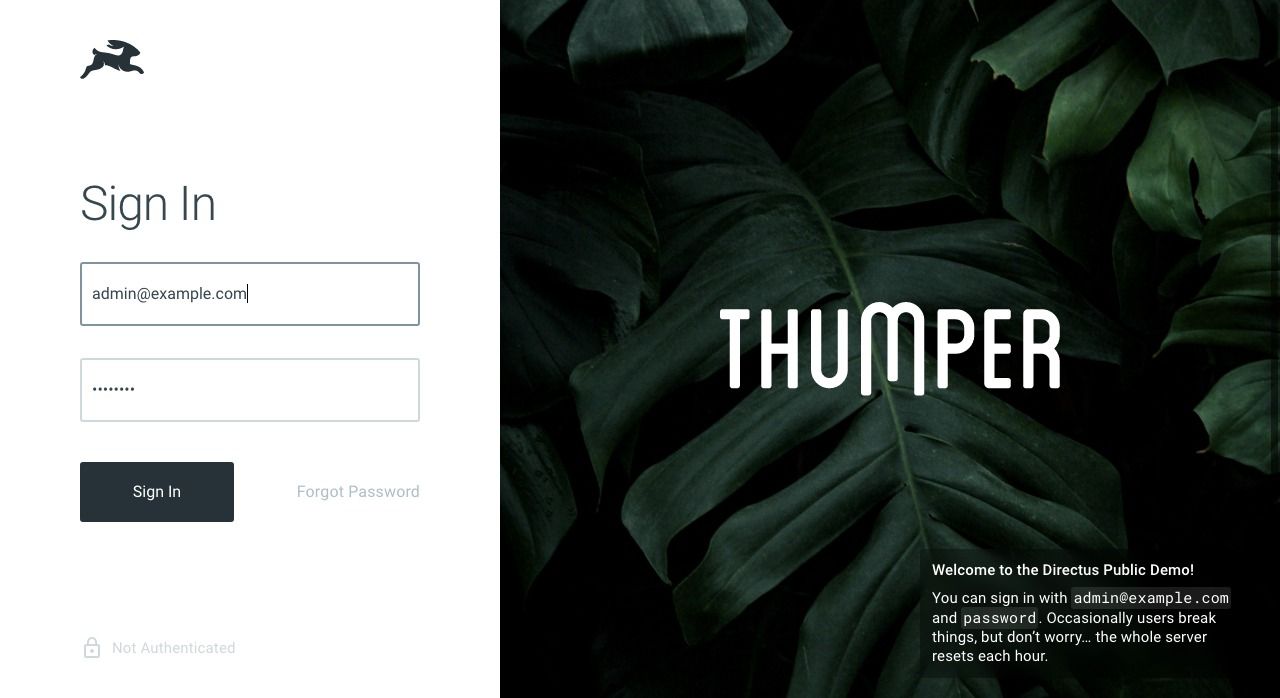
6. Twill CMS
Twill is an open-source Laravel package designed to aid developers in creating a custom, feature-rich CMS. It offers a variety of pre-built features and custom-built Vue.js UI components, allowing developers to focus on unique aspects of their applications.
Twill provides flexibility with no lock-in, no front-end assumptions, no unnecessary features, and no need to write or adapt HTML for the admin UI.

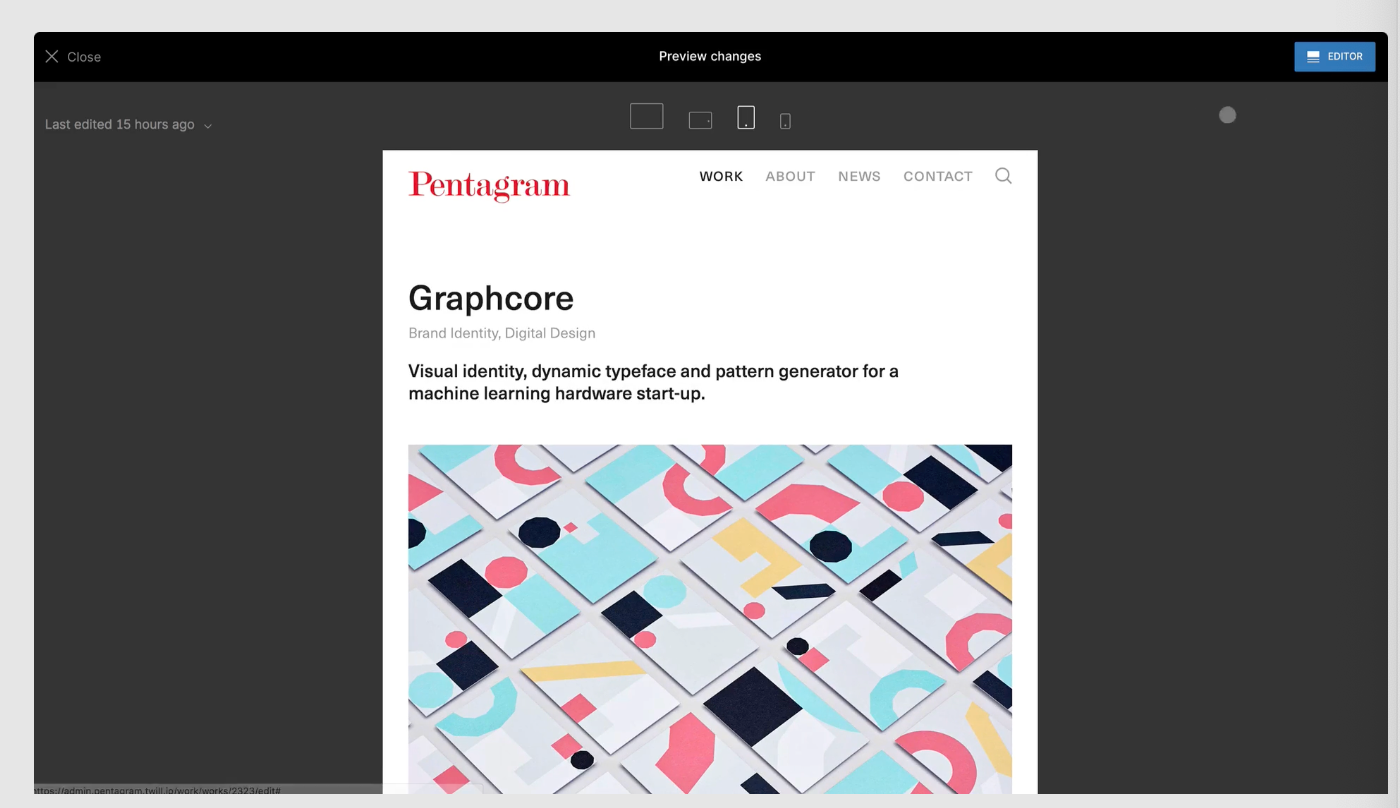
7. Payload
Payload is an innovative, open-source solution for building a modern backend and admin UI. Developed in TypeScript, it functions as an application framework and a headless CMS.
It offers features such as customizable ReactJS admin panels, extensible authentication, version history, and drafts, ensuring ease of use for JavaScript developers and no vendor lock-in.

8. Decap: Headless to Static CSS Generator
Decap CMS, formerly known as Netlify CMS, is a content management system for static site generators. It provides a clean UI for editing content stored in a Git repository through a single-page app integrated into the /admin part of a site.
Users can create and edit content once authenticated. It can be installed in two ways: a quick and easy install using a single HTML file and a configuration file, or a more complex install that requires a static site builder supporting npm packages.
9. Pocketbase
PocketBase is an open-source backend solution featuring a real-time database, authentication mechanisms, file storage, and an admin dashboard. It is ideal for SaaS and mobile apps, offering real-time subscriptions, REST APIs, and local or S3 file storage.
The app is highly customizable through Go and JavaScript, it can be used for setting up web application backends, managing user authentication, and efficient data and file storage.
It can be easily installed using Docker.


10. Webiny.js
Webiny.js is an open-source serverless enterprise CMS that deploys to AWS. It includes a drag-and-drop page builder, a headless CMS with a GraphQL API, a file manager with a built-in image editor, and a form builder with webhook support and ReCaptcha integration.
All applications can be customized to fit enterprise publishing workflows and integrate with leading identity providers.

11. Builder.io
The Drag & Drop Headless CMS allows integration with any site or app, utilizing components already in your codebase. It's compatible with React, Vue, Svelte, Qwik, and more.
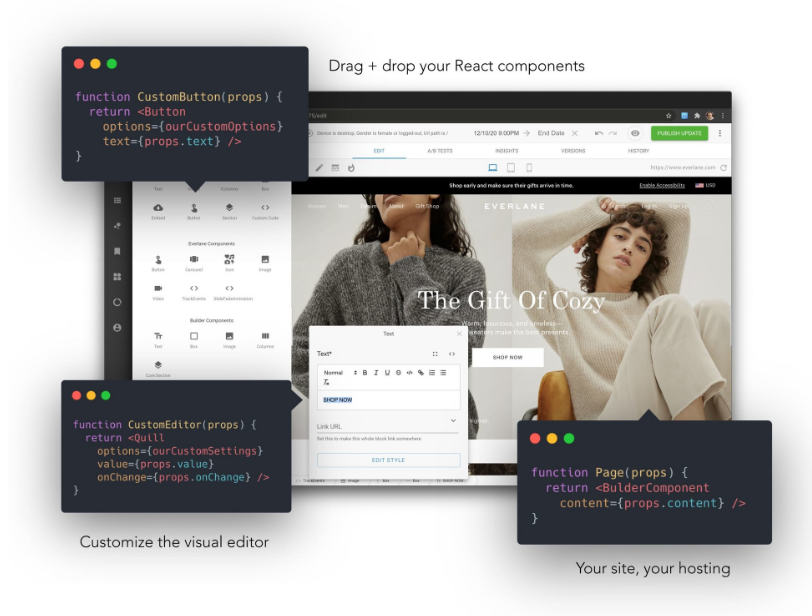
12. Squidex
Squidex is an open-source headless CMS and content management hub that provides a rich API with OData filter and Swagger definitions. It is built with ASP.NET Core and CQRS and is designed to allow users to build their UI on top of it.
13. Daptin
Daptin is a headless CMS designed for developers, offering granular access to data over the network through a single binary. It supports OpenAPI 2/3, databases, and cloud storage, and includes features like data normalization, indexing, constraints on columns, and media attachments.
It also provides authentication and authorization on APIs, a permission system, and user management flows.
14. Faust.js (WordPress Headless)
Faust.js is a framework designed to ease the development of front-end applications for headless WordPress sites, offering solutions for data fetching, authentication, previews, and server-side rendering/generation, thus enhancing the experience for developers and publishers.
15. Vrite
Vrite is an open-source platform for creating and managing product documentation, technical blogs, and knowledge bases. It offers a built-in management dashboard, a modern editing experience with Markdown and code editor support, and AI-powered semantic search for content organization.
Features
- Built-in management dashboard for managing content production and delivery using Kanban or List view;
- Modern WYSIWYG editing experience with support for Markdown, integrated code editor, code formatting and real-time collaboration;
- AI-powered semantic search for organizing and searching through your content base;
- Versatile API and Extension System for customizing your experience and delivering content to any frontend;
- Open-source, with options to both self-host.
16. Mixcore CMS
Mixcore is a fully open-source UI tool used for creating multi-purpose enterprise web apps, mobile apps, and application services. It features a back-office built on Bootstrap 5, simplifying the initiation of new projects and benefiting existing Bootstrap 5 projects.
17. RawCMS
RawCMS isn't merely a headless CMS - it's a powerful, developer-centric tool built on the cutting-edge ASP.NET Core. We're not just embracing API-first technology, we're pioneering it.
With MongoDB as our data storage and Docker-ready hosting capabilities, RawCMS stands confidently at the forefront of the headless CMS landscape.
18. Raytha
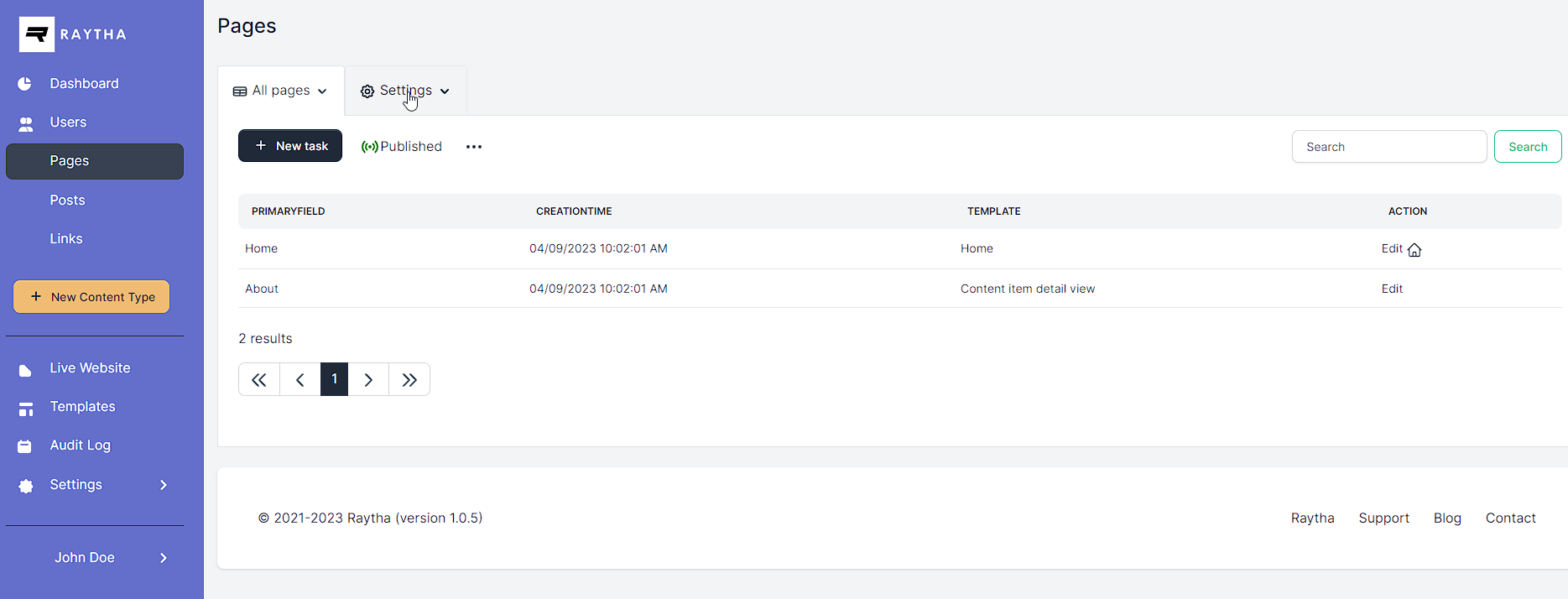
Raytha is a high-performance headless CMS featuring an intuitive interface, custom content types, a template engine, and diverse access controls. It supports multiple storage providers and includes an auto-generated REST API, enhancing your development workflow.
Features
- Content Types: Effortlessly create and customize content types, no code changes required.
- Role Based Access Control: Design customized roles with specific access permissions and assign them to individual users.
- Built In Template Engine: Easily modify templates within the platform using the popular Liquid templating engine.
- Headless Mode: Instant access to a REST API based on your content, automatically generated for you.
- Audit Logs: Built-in audit trail that tracks all edits made for enhanced security.
- Single Sign On: SAML and Json Web Token authentication are available out of the box for both administrators and public users.
- Revisions: Revisions of all content and templates are stored, enabling you to go back and revert to a previous version if needed.
- File Storage: The platform supports local file storage by default, but cloud storage options such as Azure Blob or S3-Compatible can be enabled if desired.
19. Evencart
EvenCart is an open-source ecommerce software built with ASP.NET Core, dotEntity, and Liquid. It supports Sql Server and MySql databases, uses DotEntity for O/RM, and the Liquid View Engine for views. The software is dual licensed.
20. DragonFly (C#)
DragonFly is a headless CMS for ASP.NET Core and Blazor. It offers features such as custom field schemas, content item management, structured page content, asset management, REST API, permissions, background tasks, webhooks, MongoDB storage, and an admin interface with Blazor. It also provides several NuGet packages.
21. Integreat Django CMS
This is an open-source Django-based headless CMS. It consists of several sub-packages including the main CMS package, API, Core, and various other apps that provide wrapper functions around different APIs for functionalities like push notifications, automatic import of coordinates, region aliases, region bounding boxes, and automatic translations.
It also includes an app for generating a dynamic sitemap.xml and another for (de-)serialization of translations from/to XLIFF for standardized exchange with translation agencies.
22. Velite
Velite is a tool that converts Markdown/MDX, YAML, JSON, or other files into an application's data layer with a type-safe schema.
It offers easy usage by moving contents into a content folder, defining collections schema, running Velite, and then using the output data in your application. It also provides type-safe content schema validation by Zod and generates type inference for TypeScript.
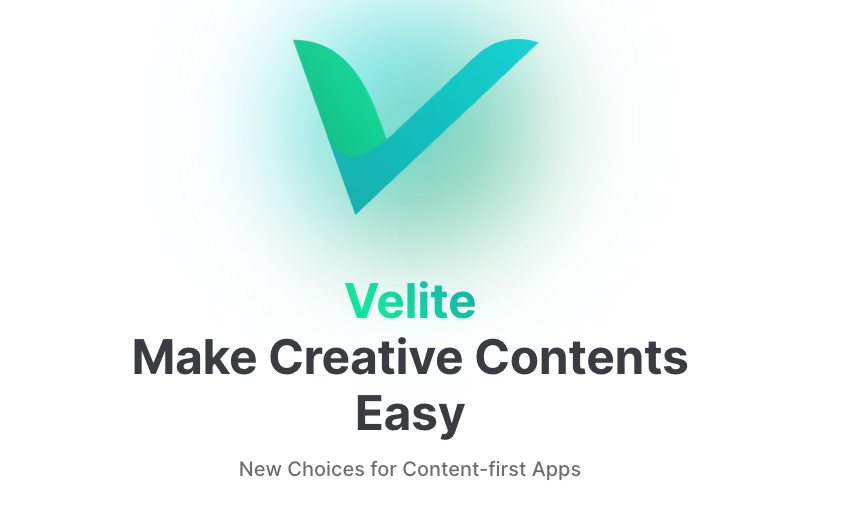
23. Firecms: Firebase to Headless CMS
FireCMS is a headless CMS and admin panel that integrates with Firebase and Firestore, and is compatible with any backend.
It generates CRUD views based on configuration, is easy to set up and customize, and does not impose any data structure restrictions. It is designed for a wide range of use cases and allows for the creation or modification of views.
24. dotCMS: Cross-platform (Java)
dotCMS is an open-source, headless/hybrid content management system designed for managing and delivering personalized, permission-based content across various channels.
It offers both Community and Enterprise Editions, REST & GraphQL APIs, full-featured page editing, and built-in search capabilities with Elasticsearch.
Features
- Open Source: Available in both Community (GPL3) and Enterprise Editions
- REST & GraphQL APIs: Instant endpoints for all your content
- Visual Editing: Full-featured page editing that works headlessly, in your SPA, or for traditional page delivery
- Search Built-in: dotCMS indexes all content and assets in Elasticsearch for real-time searchability
- Personalization, Rules & A/B Testing: Empower your marketing teams with targeting and content optimizations
- Cloud, Cloud Anywhere or Self-Hosted: Flexible deployment works with your IT/cloud strategies
- Feature Rich: Custom content workflows, scriptable APIs, push and static publishing, custom roles and permissions, OSGi-based plugin architecture
- Versatility: dotCMS can serve as a content hub and also as a platform for sites, mobile apps, mini-sites, portals, intranets
- Scalability: dotCMS can scale to support hundreds of editors managing thousands of sites with millions of content objects
- Deployment Options: Available as a docker image or as a cloud-based product
25. Flask Headless CMS
Flask Headless CMS is a Python (Flask) Headless CMS that generates a database structure and an API for content management. It supports SQLAlchemy models and PostgreSQL databases, and includes a model generator. Content types created via API determine the generated SQLAlchemy models and endpoints.
26. Baserow
Baserow is a free, open-source, web-based tool for creating and managing databases that requires no prior coding or advanced technical skills, unlike other tools such as PhpMyAdmin and pgAdmin. It is considered a low-code or no-code platform, but also functions as a tool to build apps.

27. Apitable
APITable is an open-source, API-oriented low-code platform for building collaborative apps, offering features like real-time team collaboration, an automatic API dashboard, and form generation. It has a free self-hosted edition and a paid enterprise edition with advanced features such as SAML, Single-Sign-On, and database auto backup.
However, it requires a server with at least 4 CPUs/8 GB RAM, and the Native arm64 container images are not yet ready.
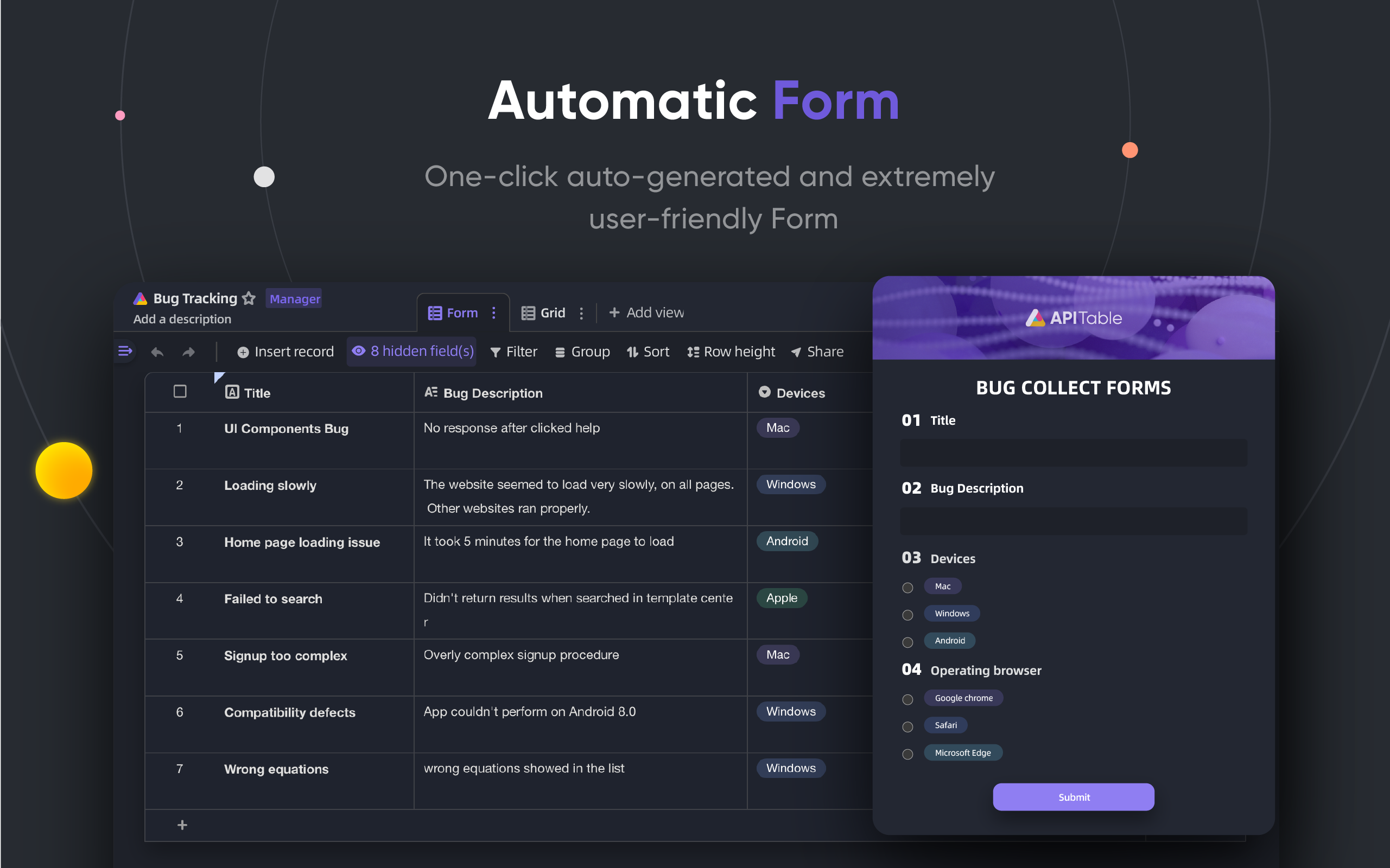
28. NocoDB
NocoDB is a self-hosted, open-source, low and no-code platform, serving as an alternative to Airtable. It offers clean installation methods, minimal server resource consumption, and quick setup. It's ideal for managing data, importing and exporting records, and creating a managed headless system for enterprises.
